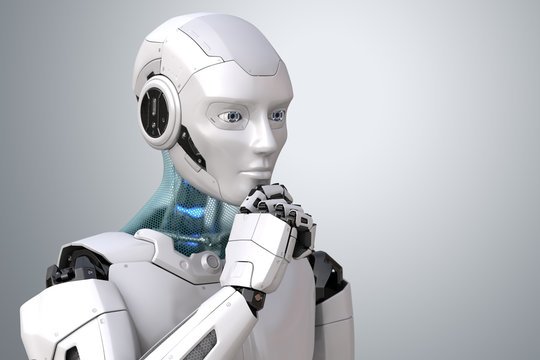AI Robots .
*The Rise of AI Robots: Revolutionizing Industries and Transforming Lives*
Artificial Intelligence (AI) robots are increasingly becoming an integral part of our lives, transforming industries, and revolutionizing the way we work and interact. These robots, powered by advanced AI algorithms, are capable of learning, adapting, and performing complex tasks with precision and accuracy. In this article, we will explore the world of AI robots, their applications, benefits, and the future of robotics.
*What are AI Robots?*
AI robots are machines that combine artificial intelligence and robotics to perform tasks that typically require human intelligence. These robots are equipped with sensors, cameras, and advanced algorithms that enable them to perceive their environment, make decisions, and take actions. AI robots can be classified into several types, including:
1. *Industrial Robots*: These robots are designed to perform specific tasks in manufacturing, such as assembly, welding, and material handling.
2. *Service Robots*: These robots are designed to interact with humans and provide services, such as customer support, healthcare, and education.
3. *Autonomous Robots*: These robots are capable of navigating and interacting with their environment without human intervention.
*Applications of AI Robots*
AI robots are being increasingly used in various industries, including:
1. *Manufacturing*: AI robots are used in manufacturing to improve efficiency, accuracy, and productivity. They can perform tasks such as assembly, welding, and quality control.
2. *Healthcare*: AI robots are used in healthcare to provide patient care, assist in surgeries, and help with rehabilitation.
3. *Logistics*: AI robots are used in logistics to manage inventory, track packages, and optimize delivery routes.
4. *Customer Service*: AI robots are used in customer service to provide support, answer questions, and help with transactions.
*Benefits of AI Robots*
The benefits of AI robots are numerous, including:
1. *Increased Efficiency*: AI robots can perform tasks with precision and accuracy, reducing errors and improving productivity.
2. *Improved Safety*: AI robots can perform tasks that are hazardous or difficult for humans, improving workplace safety.
3. *Enhanced Customer Experience*: AI robots can provide personalized support and assistance, improving customer satisfaction.
4. *Reduced Costs*: AI robots can reduce labor costs and improve resource allocation, leading to increased profitability.
*Examples of AI Robots*
Some examples of AI robots include:
1. *Pepper*: A humanoid robot developed by SoftBank Robotics that can recognize human emotions and provide support.
2. *Roomba*: A robotic vacuum cleaner developed by iRobot that can navigate and clean floors autonomously.
3. *Boston Dynamics\' Atlas*: A humanoid robot that can perform tasks that require balance and agility.
4. *Google\'s AlphaGo*: A computer program that can play Go, a complex board game, at a level surpassing human experts.
*Challenges and Limitations*
While AI robots have many benefits, there are also challenges and limitations to consider, including:
1. *Job Displacement*: AI robots may displace human workers, particularly in industries where tasks are repetitive or can be easily automated.
2. *Safety Concerns*: AI robots can pose safety risks if they are not designed or programmed correctly.
3. *Data Security*: AI robots can collect and store large amounts of data, which can be vulnerable to cyber threats.
4. *Ethics*: AI robots raise ethical concerns, such as bias, accountability, and transparency.
*Future of AI Robots*
The future of AI robots is exciting and rapidly evolving. Some trends to watch include:
1. *Increased Autonomy*: AI robots will become increasingly autonomous, capable of making decisions and taking actions without human intervention.
2. *Improved Human-Robot Interaction*: AI robots will be designed to interact more effectively with humans, using natural language processing and computer vision.
3. *Expanded Applications*: AI robots will be used in new and innovative applications, such as environmental monitoring, disaster response, and space exploration.
4. *Advances in AI Algorithms*: Advances in AI algorithms will enable AI robots to learn and adapt more effectively, improving their performance and capabilities.
*Conclusion*
AI robots are transforming industries and revolutionizing the way we work and interact. With their ability to learn, adapt, and perform complex tasks, AI robots have the potential to improve efficiency, safety, and customer experience. While there are challenges and limitations to consider, the future of AI robots is exciting and rapidly evolving. As AI robots continue to advance and improve, we can expect to see new and innovative applications that will transform our lives and shape the future of robotics.
.

Comments: